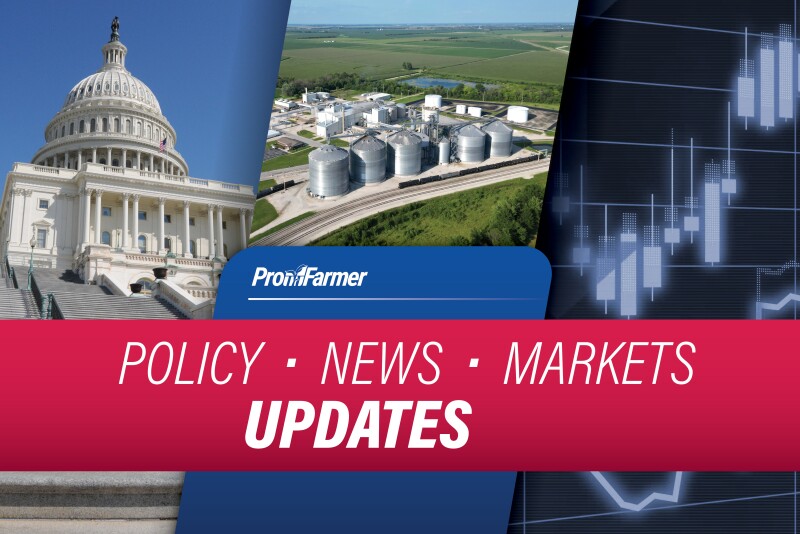Trump’s ‘Liberation Day’ tariffs halted by court ruling... A three-judge panel at the U.S. Court of International Trade delivered a significant blow to President Donald Trump’s trade agenda on Wednesday, ruling that his sweeping “Liberation Day” tariffs and other global levies imposed under the International Emergency Economic Powers Act (IEEPA) were unlawful.
The ruling invalidates Trump’s April 2 “reciprocal” tariff order, which included 30% tariffs on Chinese imports, 25% tariffs on select goods from Mexico and Canada and a blanket 10% tariff on most imported goods. It does not affect 25% tariffs on steel, aluminum, autos or auto parts imposed under the Trade Expansion Act’s Section 232.
The court concluded that Trump exceeded his legal authority under IEEPA, which does not mention tariffs or grant the president unchecked economic powers absent a clear national emergency.
The Trump administration filed an immediate appeal and was given 10 days to issue new orders based on the permanent injunction. The duration of the appeal process in the Federal Circuit can vary, but such cases typically take several months to a year to resolve.
In the meantime, the injunction against the tariffs remains in effect, and the administration may explore alternative legal avenues to reinstate them.
Should the decision stand, it could significantly curtail presidential discretion in trade policy and reset the balance of power between Congress and the executive branch.
Trump can offset tariff ruling with other tools... The court ruling blocking Trump’s “Liberation Day” tariffs represents only a temporary setback to his trade agenda, according to Goldman Sachs. Trump has other options at his disposal to impose levies. He could apply Section 122 tariffs of up to 15% for 150 days or initiate investigations under Section 301, though those would take longer to implement.
Also, Goldman Chief U.S. Political Economist Alec Phillips said he doesn’t expect the court’s decision to have a major impact on the fiscal package in Congress, “as tariff revenue was never counted toward offsetting the cost of the package, and most lawmakers never made a clear link between the two issues.”
Analyst: Trade drama far from over... According to Tom Essaye of The Sevens Report, “Lower tariffs mean a decreased chance of an economic slowdown,” and the removal “will relieve downward pressure on corporate earnings.” He also emphasized the ruling’s broader implications: “The court ruling reinforces the checks and balances in the U.S. governmental system and that will help reinforce to global investors the attractiveness of U.S. investment and markets.”
Still, Essaye cautions against premature optimism: “The administration has already appealed the decision and a path to the Supreme Court seems likely.” He noted the ruling “didn’t say the president can’t implement tariffs,” just that IEEPA isn’t a valid legal basis. That leaves open the door to new justifications or increased non-tariff trade pressure.
“I’d enjoy today’s rally, not chase it,” Essaye warned, citing ongoing trade tensions and rich market valuations. “A move towards (or through) 6,000 in the S&P 500 shouldn’t be a surprise,” he said, but called for restraint amid unresolved risks. Essaye’s advice: This is good news — but not an “all clear.”
Predictably, Trump pushes back on “TACO” trade criticism... President Donald Trump rejected Wall Street’s growing perception that he routinely backs down from aggressive tariff threats, arguing that his high-stakes moves are deliberate negotiating tactics — not signs of retreat. “It’s called negotiation,” Trump said during an Oval Office event Wednesday, defending his pattern of initially proposing severe tariffs and then scaling them back. He acknowledged setting “a ridiculous high number” to pressure trading partners, only to “go down a little bit” later to secure concessions.
His remarks came in response to growing chatter about the so-called “TACO” trade — short for Trump Always Chickens Out —a term used by traders to bet on tariff walk-backs and ensuing market rebounds. The term has gained traction amid recent reversals, such as Trump’s delay of a threatened 50% tariff on European goods and recent de-escalations with China and the UK.
“They wouldn’t be over here today negotiating if I didn’t put a 50% tariff on,” Trump said, insisting that critics misunderstood the intent behind his tactics. He called the “TACO” narrative “unbelievable” and labeled a question on the subject “nasty,” claiming he’s more often faulted for being too aggressive—not too soft.
Trump’s comments underscore his continued reliance on tariffs as a pressure tool, even as financial markets and trade partners remain wary of the unpredictability surrounding U.S. trade policy. There’s more uncertainty on the trade policy front after the court ruling Wednesday evening ruling against Trump’s “Liberation Day” tariffs.
WOAH declares Brazil free of FMD... Brazil has been recognized by the World Organization for Animal Health (WOAH) as a country free of foot-and-mouth disease without vaccination. Meatpacking association Abrafrigo called it a “historic moment” for Brazil’s beef industry after decades of actively promoting vaccination and health controls in livestock.
The new health certification positions the country “at a new level in international trade” and could help open up “highly demanding” markets, such as Japan, to Brazilian beef, said the Brazilian Association of Meat Exporters (Abiec).
With the new status, the Brazilian government will need to renegotiate several international health certificates.


